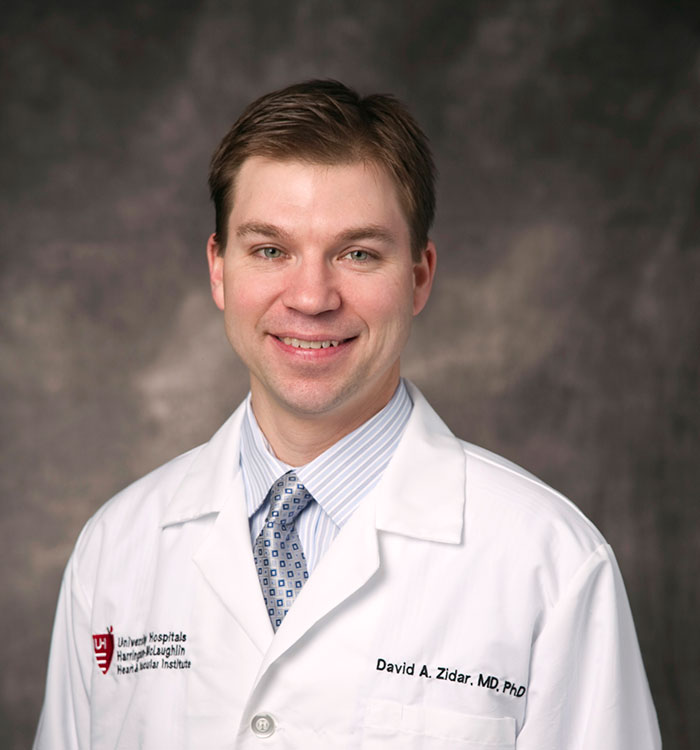SARS-C0V-2 Task Force Accelerates Study of Impact of COVID-19
January 31, 2021
Expert physicians and scientists unite in unprecedented multi-campus collaboration
Innovations in Cardiovascular Medicine & Surgery | Winter 2021
This past March, Northeast Ohio’s premier academic and medical institutions swiftly united in response to the unfolding coronavirus pandemic. The SARS-CoV-2 Task Force, launched as a collaborative between Case Western Reserve University and its affiliate institutions, provides a forum for interdisciplinary research into the multifaceted effects of the virus.
Under the direction of Jonathan Karn, PhD, Professor and Chair of the Department of Molecular Biology and Microbiology at Case Western Reserve University School of Medicine, and Nora Singer, MD, Director of Rheumatology at MetroHealth Medical Center, members of the task force have secured more than $6 million in grant funding to accelerate numerous interdisciplinary research projects aimed at understanding and controlling COVID-19.
 David Zidar, MD, PhD
David Zidar, MD, PhD“The goal of the initiative was to provide a venue for scientists of different backgrounds to share ideas, gather input and develop testable hypotheses,” says David Zidar, MD, PhD, interventional cardiologist at University Hospitals Harrington Heart & Vascular Institute and the Louis Stokes Cleveland VA Medical Center; and Associate Professor at the School of Medicine. “It took a great deal of foresight to recognize, very early on, the advantage of conducting this type of collaborative science.”
The affiliate institutions include:
- University Hospitals Cleveland Medical Center
- Cleveland Clinic Health System
- MetroHealth Medical Center
- Louis Stokes Cleveland VA Medical Center
- Case Western Reserve University School of Medicine
- Cleveland Clinic Lerner College of Medicine
In one working group, researchers within the Harrington Heart & Vascular Institute at UH Cleveland Medical Center joined forces with cross-campus experts in the fields of virology, infectious disease, radiologic oncology and statistics in response to a Request for Proposals from the National Cancer Institute. The team was awarded funding to study the role of antibody activation and effectiveness in blocking the function of coronavirus.
As the body responds to an insult, there are likely beneficial and harmful reactions that occur. By studying the proteins produced on a cellular level, the team is working to tease out the multiple pathways and stressors influencing the immune system and its effects on the heart.
“The task force has served a tremendous purpose to align people in working groups and allow us to vet ideas with one another as we build research programs to tackle the disease,” says Dr. Zidar, who is serving as co-principal investigator on the study.
“The field has evolved rapidly to include concern that there is cardiovascular injury in a substantial minority of COVID-19 patients,” Dr. Zidar says. “This grant is well-positioned to shed light on the mechanisms that are responsible for this injury that SARS-CoV2 can cause to the heart and blood vessels.”
FOSTERING AN ONGOING COLLABORATION
This past November, members of the task force’s steering committee hosted a virtual retreat to share critical findings to date. Each working group had an hour to present projects, followed by time for questions and answers.
“I’ve been struck by how many innovative researchers are scattered across our various institutions,” says Dr. Zidar. “Science traditionally is conducted by individuals who have specialized themselves into a particular niche so that they can develop expertise. That is necessary. However, gathering a huge cross-campus network of people sharing their efforts has been a unique outgrowth of this pandemic. It has been essential to the local approach to this unprecedented problem and will hopefully nurture non-COVID research collaborations as well.”
Dr. Zidar credits Mukesh K. Jain, MD, Chief Academic Officer at University Hospitals, for fostering an environment that motivates physicians and scientists to pursue collaboration and discovery. “Mukesh is an unsung hero,” he says. “Having him at the helm on the University Hospitals Cleveland Medical Center side has accelerated the collaborative spirit among our institutions.”
The willingness to pivot from individual projects and invest substantial time and effort in the task force speaks to a collective commitment to the greater good.
"Research efforts at the intersection of disciplines often leads to transformative breakthroughs and innovation. I feel enormously proud of how the efforts led by University Hospitals Harrington Heart & Vascular Institute team members, in collaboration with colleagues throughout the city, are advancing cutting-edge interdisciplinary research to combat the pandemic and improve human health," says Dr. Jain.
For more information, please contact Dr. Zidar at David.Zidar@UHhospitals.org.


